

Even as practitioners, we didn't know how broken the mental health system was...until our child became part of it.
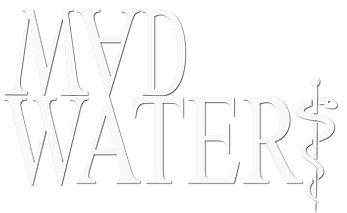
Even as practitioners, we didn't know how broken the mental health system was...until our child became part of it. In upcoming episodes, we ask leaders like Rachel Yehuda, Allen Frances, and Maia Szalavitz what they are doing to change it. This is Mad Waters.
Trailer
Season Two - Now Live
Mortality deaths in adolescents due to unintentional overdoses reached an all-time high in 2020. The majority of deaths (81%) were due to fentanyl and other synthetic opioids. About 41% of those who overdosed had a prior history of mental health.Yet, more often than not, we treat substance use and mental illness separately. Addressing mental illness and substance dependence requires ‘out of the box’ thinking. Our guest is one of those leading this charge as he explores alternative treatment interventions like psychedelic associated therapy.
Nathan Sackett, MD, is trained as an addiction psychiatrist, focusing on the intersection between substance use and psychiatric disorders. His research focuses on the use of psychedelics to treat substance use disorders with a particular interest in how psychedelics can augment the psychotherapeutic process and facilitate behavioral change. Just recently, he was tasked with leading the state-mandated psilocybin trial.

Nathan Sackett, MD, MS, RN, is an Acting Assistant Professor at the University of Washington in the Department of Psychiatry and Behavioral Sciences where he splits his time between seeing patients and research.
“Efforts are being made to reach underserved communities.” A cry so familiar, it sounds more like a platitude than a plan. Yet, we still accept it as the necessary and sufficient answer to much of our healthcare woes. What if it isn’t? What if all of our dollars and initiatives are directed at the wrong target? The answer, it turns out, may not be about healthcare at all.
Dr. Kenneth Thompson is a public service psychiatrist and former medical director of the Center for Mental Health Services at the Substance Abuse and Mental Health Services Administration. He is also a member of the recently initiated APA Task Force on the Social Determinants of Mental Health. Along with his daughter Alice Fox Thompson, MD, Dr. Thompson founded and directs the Visible Hands Collaborative to bring solidarity care to the U.S. using Integrated Community Therapy. www.visiblehandscollaborative.org

Dr. Kenneth Thompson, public service psychiatrist and former medical director of the Center for Mental Health Services at the Substance Abuse and Mental Health Services Administration
There was a collective sigh heard round the world when children went back to school after the Covid-19 pandemic. Yet, we were unprepared for what came next - an explosion of physical fights, skyrocketing anxiety, depression, and unprecedented refusal to even go back to school. This, on top of the fact that there is a severe school counselor shortage across America. If schools couldn’t tackle this with more staff, they would need innovation and skilled leadership. One district, our very own in fact, showed how it could be done.
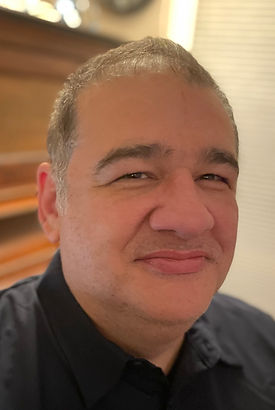
Dr. Jared Taylor, coordinator of behavior interventions and mental health services of the Bellevue School District
Dr. Jared Taylor is the coordinator of behavior interventions and mental health services of the Bellevue School District, serving close to 20,000 students. He has a PhD in special education from the University of Washington, where he focused on the implementation of cognitive behavioral therapy in school settings.
The opioid crisis is making headlines and demanding the attention of policy makers, Emergency Rooms, addiction specialists, and law enforcement. As it should. What about the insidious, even more pervasive addiction that is right in front of all of our eyes? The “modern-day hypodermic needle” that delivers hits of pleasure 24/7. Our brains were not built for this and the result is an epidemic of people in a state of dopamine withdrawal, more commonly known as depression and anxiety. Finding out how to achieve balance among overconsumption is the battle our guest is finding out how to win.
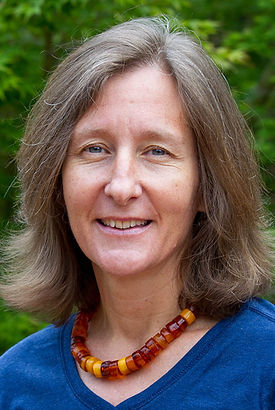
Dr. Anna Lembke, Chief of the Stanford Addiction Medicine Dual Diagnosis Clinic at Stanford University
Dr. Anna Lembke is the Chief of the Stanford Addiction Medicine Dual Diagnosis Clinic at Stanford University. She specializes in the opioid epidemic in the United States, and is the New York Times bestselling author of Dopamine Nation: Finding Balance in the Age of Indulgence, where she explores how our relentless pursuit of pleasure, in its almost endless forms, can actually lead to pain.
Autism is a tricky diagnosis to make sometimes. It can present in numerous ways that don’t fall into classic presentations. Take this problem and now multiply it. What you get is the challenge in diagnosing Autism in girls. As we begin to recognize what we’ve been missing, a new variant of Autism may be making diagnosis even more difficult. For some, though, it may finally be the answer they’ve been looking for.

Dr. Cynthia Martin, the Senior Clinical Director and a psychologist in the Autism Center at New York City’s Child Mind Institute.
Dr. Cynthia Martin is the Senior Clinical Director and a psychologist in the Autism Center at New York City’s Child Mind Institute. She is a nationally recognized expert in autism, neurodevelopmental disorders, and rare genetic conditions that affect development and behavior; and also is an international trainer on gold standard assessments used in autism evaluations.
From the moment babies enter the world, they are being taught. Taught to identify colors, shapes, numbers, letters. Later, they learn to read, to swim, to ride a bike. They arrive wired to learn. What if these same babies were even better teachers? In a time when we are experiencing an empathy deficit manifested in political tribalism, workplace hostility, school violence, it may be the tiniest among us that can bring us the greatest hope.

Mary Gordon, an award-winning social entrepreneur, educator, and best-selling author
Mary Gordon is an award-winning social entrepreneur, educator, best-selling author, parenting expert, and child advocate who has created an international children’s charity, Roots of Empathy (ROE). She has consulted with and/or presented to the UN, the WHO, UNICEF, and The Nelson Mandela Children’s Foundation.
“What is the difference being a mother of a child with mental illness and the mother of a child who might have heart disease or cancer?” That was the question posed on a 60 Minutes episode by Scott Pelley. The answer was sympathy and… casseroles. While communities often rally around families with physically sick children, a combination of stigma, fear and ignorance often coalesce to leave families isolated and ashamed. This may finally be changing and the reason, recognizing the power and lessons of those who’ve lived it.

Dr. Ken Duckworth, MD, the chief medical officer for the National Alliance on Mental Illness (NAMI)
Dr. Ken Duckworth is the Chief Medical Officer of the National Alliance on Mental Illness (NAMI) and an Assistant Professor of Psychiatry at Harvard Medical School. He has received numerous awards for his work to advance our knowledge and treatment of mental illness and is the author of the recently released book, 'You Are Not Alone', NAMI’S first ever book.
Season One

Our child had always been drawn to the water. As we stood on an old bridge overlooking the shifting tides of the ‘mad waters’ of Chalkida, Greece, it was painfully apparent that despite our best intentions, what had led to this moment had been anathema to the physician’s creed of ‘do no harm.’ Would this place provide the panacea or would it be another form of exile?

Dr. Allen Frances, Professor and Chairman Emeritus of the Department of Psychiatry and Behavioral Sciences at Duke University School of Medicine
Dr. Allen Frances has called the United States the worst place in the world to have a severe mental illness. He is Professor Emeritus and former Chair of the Department of Psychiatry at Duke, the chair of the DSM-IV Task Force, an international best selling author and according to The Atlantic, “one of the world’s most prominent psychiatrists.”
The night I met my future father-in-law was scary as hell. It was a phone call that began as civil and devolved into insults, profanity and finally threats. I’d only known this kind of person through movies or books. My husband -to-be, had grown up with him. So, what? I thought. I was marrying the son, not the father.
In the age of 23 and Me or Ancestry.com, what do we really know about who we are, how we got this way, and the effect it has on our parenting?
Dr. Rachel Yehuda is a pioneer in the study of traumatic stress. She is a Professor of Neuroscience and Psychiatry at the Icahn School of Medicine at Mount Sinai. She is also Director of Mental Health at the Bronx VA Medical Center and Director of the Traumatic Stress Studies Program at Mount Sinai. More recently, she spearheaded Mount Sinai’s Center for Psychedelic Psychotherapy and Trauma Research.
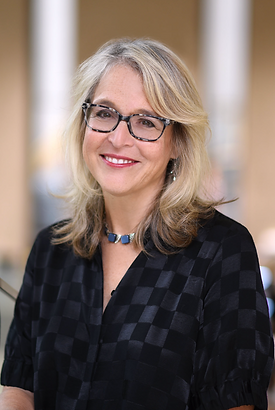
Dr. Rachel Yehuda, Professor of Neuroscience and Psychiatry at the Icahn School of Medicine at Mount Sinai; Director of Mental Health at the Bronx VA Medical Center and Director of the Traumatic Stress Studies Program at Mount Sinai
The mother-child bond has had a central role in therapy and psychological theory since the beginning. Mothers are at once the source of love and a target of blame for their child’s well being. Can we separate the science of attachment from the fairy tales we’ve all grown up with?
Kristen Arquette is a licensed marriage and family therapist and substance use disorder professional who specializes in evidence-based and data driven therapies. Her expertise has been featured in The Washington Post, Family Education.Com and American Teen Magazine. She is one of the most skilled practitioners we’ve ever worked with.
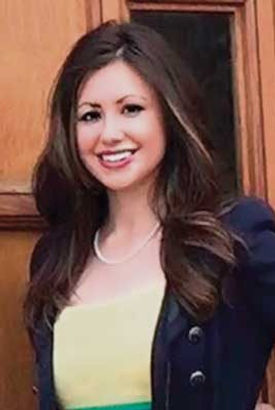
Kristen Arquette, licensed marriage and family therapist and substance use disorder professional
How can parents ever justify sending their child away in the name of getting help? That was the question we asked for years until we found ourselves pulled into that same position.
Residential Treatment Centers, as they are called, are a last resort for parents but for thousands of children and adolescents who’ve experienced them, they can be places of abuse, neglect or worse. Why should help, ever mean saying ‘good-bye?’

Maia Szalavitz, N.Y. Times bestselling author covering residential treatment and other important topics
Maia Szalavitz is a N.Y. Times bestselling author whose book, Help at Any Cost exposed the frightening and tragic world of residential treatment. She has written for numerous publications from The Washington Post to The Atlantic— and is author or co-author of six other books including two written with Bruce Perry, MD, PhD, a distinction she now shares with Oprah Winfrey.
Imagine you are ill and that part of the malady, is not knowing it. Imagine that the result of this is not only to get worse. It is potentially fatal.
That is exactly the scenario in which a small percentage of those with mental illness find themselves and for those who love them, the choices to get help are excruciating and in some cases, pose ethical and legal dilemmas that even experts are hard pressed to answer.
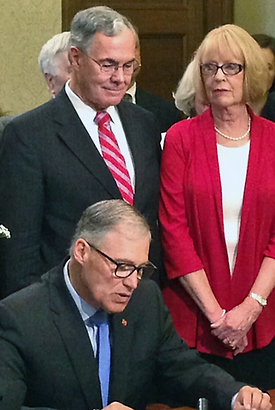
Doug Reuter, with his wife Nancy watching Washington Governor Jay Inslee sign "Joel's Law", implemented July 24, 2015
Doug Reuter has been a legislator in the Minnesota House of Representatives, a sailor in the US Navy and an inventor of a world renowned board game. He is also a parent who lobbied for 2 years for the passage of Joel’s Law, allowing a family member to petition to have their loved one involuntarily committed after his son Joel died at the hands of the Seattle police, ‘defending himself against zombies.’
Covid-19 exposed fault lines in our culture, our education, and our healthcare. Burn-out spread like wildfire among those on the front lines and set the stage for what is now being called, the Great Resignation.
Can we care for the sick if, as corporations, a government, a society, we are not truly caring for the well?

Dr. Akhtar Badshah, expert on social impact, philanthropy and international development
Dr. Akhtar Badshah is an internationally recognized expert on social impact, philanthropy and international development. For 10 years, he led Microsoft's global philanthropic efforts administering the company’s community investment and employee programs. He actively engages and challenges business and technology leaders to become catalysts to social change and is the author of The Purpose Mindset: How Microsoft Inspires Employees and Alumni to Change the World.
Few have experienced the kind of isolation that Covid-19 brought with it. Although mandated for our collective health, it wreaked havoc on our mental health. Since the 1980’s, Japan has seen social withdrawal to the extreme with a group of primarily young men known as hikikomori. They refuse face-to-face contact for years and sometimes decades. As we emerge from the pandemic, what lessons do these modern hermits have for us?
Dr. Alan Teo is a psychiatrist and health services researcher at the Oregon Health & Science University. He is an international expert in Hikikomori and a core investigator at the VA HSR&D Center to Improve Veteran Involvement in Care at the VA Portland Health Care System. His focus is on depression and suicide prevention and how social connections can influence mental health.

Dr. Alan Teo, Psychiatrist and Health Services Researcher at the Oregon Health & Science University
Mad Waters is a voice among many that seeks to purge the stigma, shame, alienation and fear surrounding mental health to find what is common and what is eternal – a desire for connection, with each other and with our true self. This story is ours but I know there are many like ours. For those children and their families, I feel awe. It often takes a heroine’s resolve to find treatment, to battle demons, to continue to love.

“One thing that comes out in myths is that at the bottom of the abyss comes the voice of salvation. The black moment is the moment when the real message of transformation is going to come. At the darkest moment comes the light.”
Joseph Campbell
About the Hosts
Adrienne and Michael have worked together as professionals and parents
and it is the experience in both of these areas, that they bring to Mad Waters.

Adrienne Berofsky-Seyffert
Adrienne has graduate degrees in counseling and film from Columbia University. Her work has been shown at the Berlin and Barcelona International Film Festival, on WNYC TV, and on BBC. She has written for numerous publications including peer reviewed journals and is the author and creator of a popular children's book published with Disney. She is currently working on a book with her husband that draws on their personal experience, training and the exciting neuroscientific research in the field. This is her first podcast.
Michael Seyffert

Michael Seyffert is a board-certified psychiatrist. He is also board certified in sleep and pediatric neurology. He has been on the front lines of brain imaging for over a decade. Having done research at NYU Child Study Center and University of Washington using fMRI, he is hopeful that technology, multi-modal brain imaging and genetics will lead to a better future for mental health. Dr. Seyffert is a former US Army infantry officer and Air Force flight surgeon. He was awarded the Combat Air medal while serving as the Chief Flight Surgeon for the 107th Expeditionary Field Squadron, Al Jaber Air Base, Kuwait where he treated service members. Learn more about Michael's private practice at seyffertmd.com.